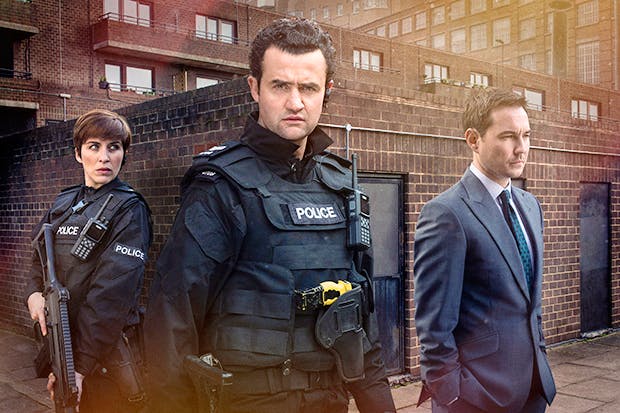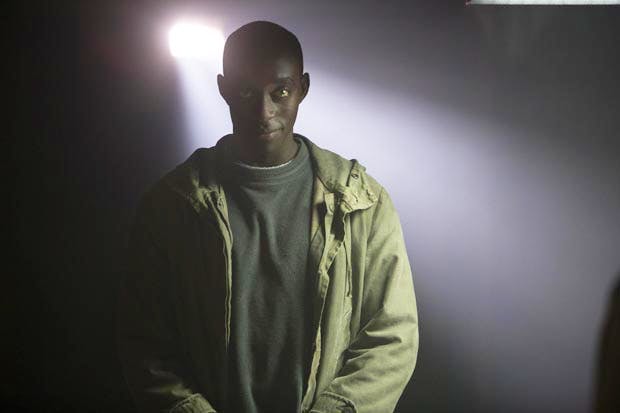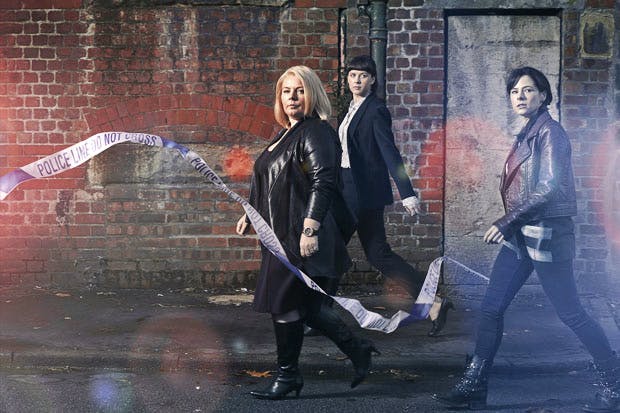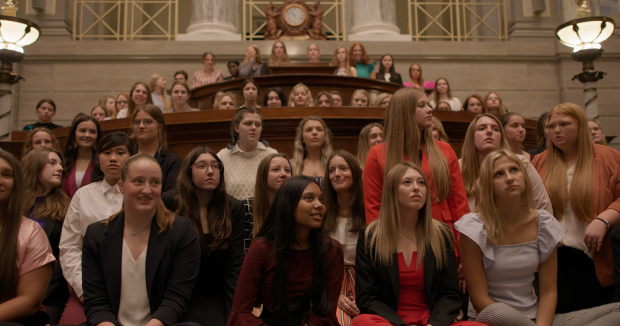Which is better, British TV drama or American? A couple of years ago, merely asking the question would have had the hipsters chortling into their obscure US box sets — and even now a strange cultural cringe seems to persist. Nonetheless, I’d suggest, British television drama these days really is in the midst of an era that will have commentators in 20 years’ time routinely (if a bit unimaginatively) reaching for the adjective ‘golden’. Already in 2016 we’ve had War and Peace, Murder, The Night Manager and Happy Valley — and that’s before the hugely welcome return of Line of Duty (BBC2), Jed Mercurio’s riveting thriller about a police anti-corruption unit.
To any viewers who haven’t seen the previous two series, Thursday’s episode might initially have looked pretty straightforward. Sergeant Danny Waldron, played by Daniel Mays (never a good sign for a policeman), led an armed squad in pursuit of a suspected gangland killer. Once cornered, the man threw down his weapon and knelt in surrender — whereupon Danny shot him repeatedly in the head. He then bullied three colleagues into backing up his story that the man had fired first.
So, those Line of Duty newbies will have thought, it’s just a question of whether the goodies in the anti-corruption unit will catch the bad guy. But of course, as we gnarled veterans of the show could have told them, it was never going to be that simple. For one thing, we know that one member of the unit, DI Cottan, is far more corrupt than anyone he’s likely to investigate. For another, nothing in Line of Duty is ever simple.
Sure enough, it turns out that Danny’s crime may be a lot more personal than we’d been led to believe. It might also be that his bullied colleague Hari isn’t necessarily the tortured innocent we’d rather hoped. Most confoundingly of all, Danny ended the episode on the brink of death, having been shot — possibly by himself — during another armed operation.
Before series two, you may remember, there was quite a fuss about Jessica Raine taking on her first major TV role since Call the Midwife. But then, having been given a full back story and an apparently starring role, her character was killed off in the first episode. So has the same happened again with Daniel Mays, the supposed star of series three? The answer — a highly satisfying one at this stage — is that I have absolutely no idea. Yet, what makes Line of Duty so good is not just the traditional pleasures of plot, pace and characterisation. It’s also Mercurio’s entirely justified belief that the more technical aspects of an anti-corruption case can be extremely dramatic too. Thursday’s episode had its fair share of gun-wielding cops smashing doors open with those big cylinder things, yelling ‘Armed police!’ and clattering up flights of stairs. Even so, for sheer excitement, it was still hard to beat the scenes where Danny and his accusers exchanged quick-fire dialogue about the subsections of various government police acts.
And in fact Line of Duty wasn’t the week’s only impressive new British drama. Charged with the tricky task of following Happy Valley at 9 p.m. on Tuesdays, The A Word (BBC1) also got off to a very promising start — even if, for more middle-aged viewers, there was the unpleasant shock of realising that Christopher Eccleston is now old enough to play a grandad.
The programme is set in the Lake District, where Paul and Alison Hughes spent much of the episode strenuously trying not to see that there was something wrong with their son Joe. OK, so he constantly listened to a selection of post-punk classics on headphones that appeared sutured to his ears, didn’t speak to other children and was rubbish at musical statues — but aren’t all five-years-olds like that?
This fiction, though, became increasingly hard to maintain — and not only because Joe might as well have been wearing an ‘I’m Autistic’ baseball cap. Alison’s brother and his doctor wife, for example, have come to stay from London and, when not cuckolding him, the wife had studied child development. Nor can grandad (a man, by his own admission, ‘still getting used to not saying spastic or mongol’) be wholly relied on to keep his observations to himself.
Luckily, the script by Peter Bowker (Capital, Marvellous) is a lot more tactful: treating everybody concerned with a level of sympathy that makes everything they do — however misguided or contradictory — feel like the completely understandable behaviour of decent people doing their best. And all without being remotely soppy.
As Joe, Max Vento also confirms that of the many things that have improved enormously during my adult life — vacuum cleaners, Eastern Europe, coffee, Match of the Day — the quality of child actors is fairly close to the top of the list.
Got something to add? Join the discussion and comment below.
Get 10 issues for just $10
Subscribe to The Spectator Australia today for the next 10 magazine issues, plus full online access, for just $10.














Comments
Don't miss out
Join the conversation with other Spectator Australia readers. Subscribe to leave a comment.
SUBSCRIBEAlready a subscriber? Log in